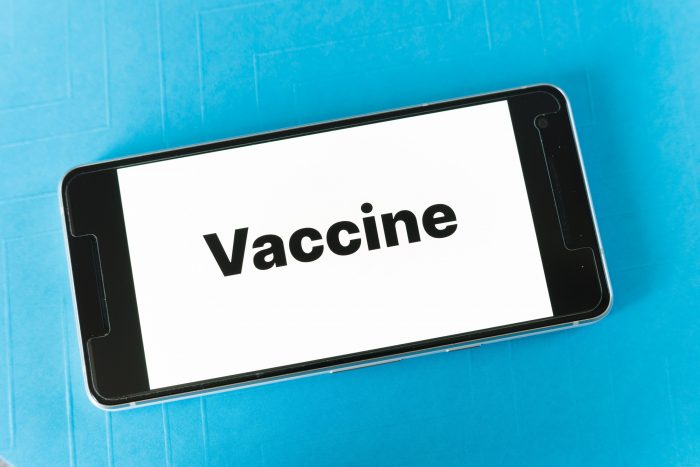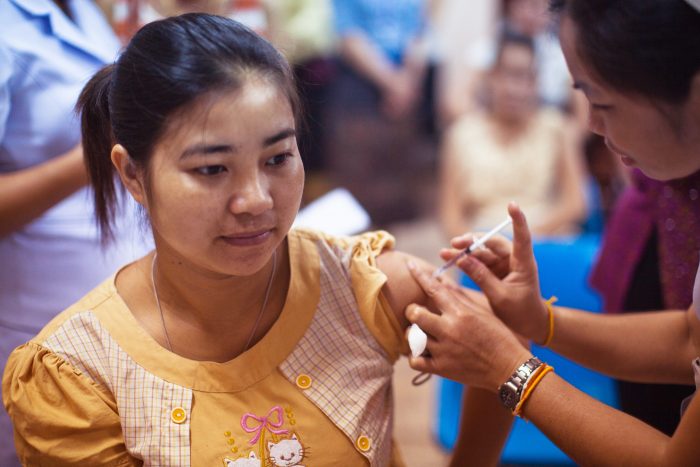Harrisburg, PA – Governor Tom Wolf and the COVID-19 Vaccine Task Force announced that effective tomorrow, Tuesday, April 13, all Pennsylvania adults will be eligible to schedule an appointment for the COVID -19 vaccine.
“We need to maintain acceleration of the vaccine rollout, especially as case counts and hospitalization rates have increased,” Gov. Wolf said. “Therefore, just as President Biden has brought forward universal adult access to vaccines from May 1 to April 19, we are moving Pennsylvania’s timeline of universal adult access to April 13.”
The Department of Health noted that there is ongoing appointment availability in many parts of the state even as Phase 1A and B continue and 1C begins today. With the change in eligibility, those in Phase 2 will become eligible, opening up vaccines to all. Our ongoing initiative with the Area Agencies on Aging to provide assistance to vulnerable seniors for accessing vaccine will continue, as will our other equity initiatives.
“Everyone needs and should be afforded the opportunity to access the vaccine as soon as possible,” Acting Sec. of Health Alison Beam said. “And, this change provides earlier access for many, including college students increasing the likelihood of completion of two-dose regimens prior to leaving campus for the summer. It also means simpler, streamlined operations for vaccine providers that no longer need to check eligibility of people making appointments.”
To date, Pennsylvania providers have administered more than 6 million vaccines and the state is ranked among the top 20 states for first-dose vaccinations. More than 2.4 million Pennsylvanians are fully vaccinated.
Pennsylvanians can find providers on the COVID-19 Vaccine Provider Map here.
“Please get vaccinated,” said Sen. Art Haywood.
“It is precisely the bipartisan cooperation of this Joint Task Force coupled with the tremendous work of our provider network that has allowed our Commonwealth to make rapid progress in our vaccine rollout, now expanding eligibility so that every Pennsylvanian who wants to be vaccinated has the opportunity to do so immediately,” said Sen. Ryan Aument. “Because we have maintained our commitment to residents within phases 1A and 1B, we can now further accelerate the rollout and protect our communities, particularly by ensuring that college students can be vaccinated before returning home to their families for the summer.”
“The administration, our task force, and all of our local providers have collaborated together to achieve the goal put forth by President Biden,” said Rep. Bridget Kosierowski. “With the number of COVID-19 positive cases continuing to rise some areas of our state, it is imperative that everyone who wants to schedule an appointment for a vaccine can have that opportunity to do so.“
“I’m pleased we are able to speed up eligibility so that all Pennsylvanians who want a vaccine can schedule one,” Rep. Tim O’Neal said. “Western Pennsylvania has hosted a number of vaccine clinics in recent days where supply has outstripped demand. We were able to get approval to expand eligibility at one of these clinics, but it only makes sense to open vaccinations to all. The work of the task force has shown when all parties work in a collaborative fashion, we can accomplish a lot in a short timeframe.”
“This further-accelerated plan will move us much closer to the goal of vaccinating Pennsylvanians as quickly and equitably as possible,” Gov. Wolf said.
MEDIA CONTACTS:
Lyndsay Kensinger, Governor’s Office
Barry Ciccocioppo, Health

















